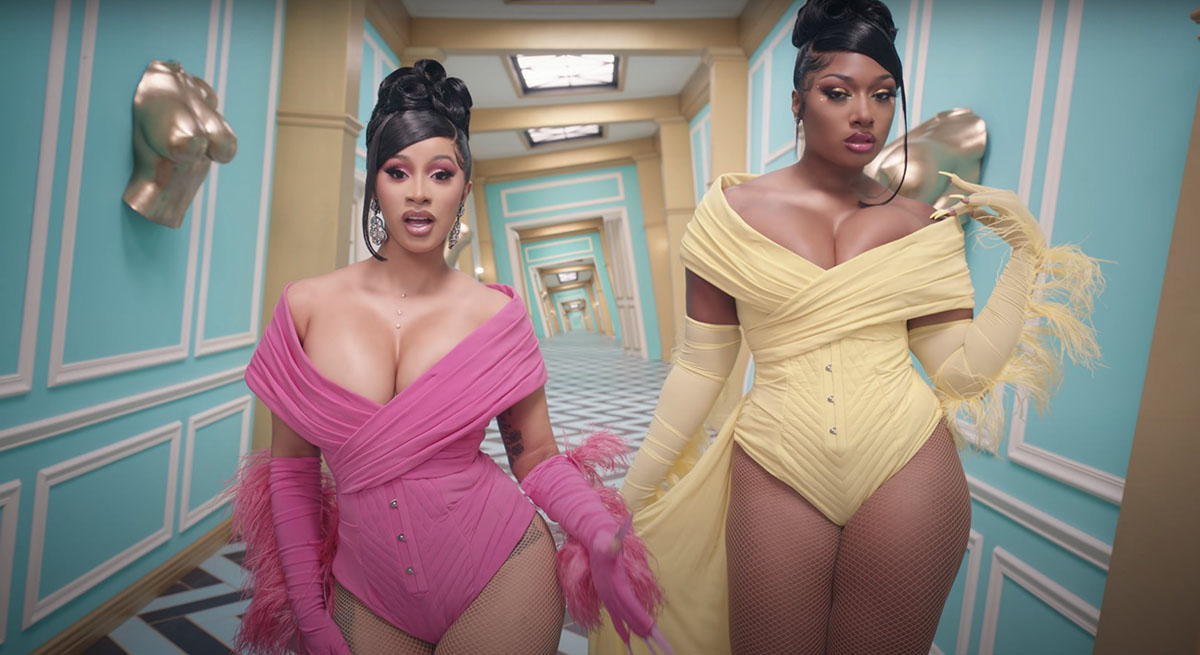When the song “WAP” (an acronym for “wet ass pussy”) was released by Cardi B a few months ago, it took the internet by storm as listeners tried to decide what to make of it. Hilariously, some took it literally, calling it a gynecological condition (à la Ben Shapiro), others questioned the morals of its sexually explicit lyrics and music video, and others rejoiced in how it empowered women. Honestly, I don’t take any issue with the song itself; sexual rap and music videos are a staple in the music industry, after all. For those up in arms about the morality of sexual imagery, there’s a larger battle to be won. However, what needs to be addressed is that the creators of “WAP,” Megan Thee Stallion and Cardi B, produce music capitalizing off female sexuality while actively preaching against what they rap about. The truth of the matter is that hypersexual female rap is often more misleading and disingenuous than it is an avenue of female empowerment.
Hypersexual female rap has dominated the recent rap scene, with Cardi B, Doja Cat, Megan Thee Stallion, and Cupcakke all performing at the top of the game — not to mention the continued popularity of “My Neck, My Back.” It’s hard to argue that there isn’t something powerful in blasting a rap beat with raunchy lyrics and being able to spit the lines along with the best of them. It’s also hard to take issue with the fact that women of colour are being recognized in the music industry as talented, beautiful, and worth investing in. Lyrics that embrace sex, which is often deemed taboo, shameful, or only discussed behind closed doors, can feel great to listen to, especially when you can bond with others about that passion.
However, in separate interviews, Megan Thee Stallion and Cardi B both explained that they purposely avoid sleeping with new partners to keep their “body count” low (referring to the number of different partners someone has had sex with). They both explained they got around this by sleeping with exes (even if they’re in a new relationship, according to Megan). This muddies their messages of female sexual empowerment; Cardi B and Megan promote women being proud of their sexualities, owning their carnal desires without shame, yet turn around in interviews and stigmatize women sleeping with “too many” partners. It’s to be expected that with sexcapade rap tracks there’s an element of hyperbolic fantasy, but it sends mixed messages to preach freedom of sexuality — to an arbitrary numerical limit. Is the takeaway that you can be proud of your sexuality, but only if you sleep with less than a certain number of people, and only in a specific way?
There are conflicting ideas within the words of both these rappers, where there’s no shame in using sex and a nice body to make a living — as long as you maintain an inner purity to moralize and counterbalance it. Their music videos focus heavily on revealing outfits and close-up shots of dancers twerking (and there’s nothing wrong with that), but their comments on “body count” make it clear that this is strictly business, and their personal lives are a different matter. Although they backpedal and say they don’t care what others do with their bodies, Megan and Cardi B are still implying that having too many sexual partners is a bad thing and should be avoided. Another example is how Cardi B explained that she doesn’t think there’s anything wrong with paying the bills by being an exotic dancer, but at the same time would never encourage her daughter to do the same. In the same interview, Megan also showed disdain for running her “mileage” up (a phrase implying that the condition of a woman’s body worsens if she has increased amounts of sex or sexual partners). Contrary to what their deliciously fun and sex-positive tracks might have you think, two of the biggest female rappers in the game right now believe that having too many sexual partners degrades a woman.
Cardi B further went on to insinuate that slut-shaming is bound to happen if you have multiple partners, and that to avoid it one has to play by the rules. While disappointing, playing by the rules of a misogynistic society is exactly what these rap stars seem to be doing. They give the people what they want: sexy tunes you can get down and dirty to, that exclaim that you should be able to sleep with whom you want, when you want, how you want. But at the same time they play safe by advocating against “sleeping around” in their personal lives. They’re carefully maneuvering both sides of the argument while collecting the YouTube views, Spotify streams, music awards, and your money for their merchandise.
I’m not trying to say we have to stop enjoying hypersexual rap. (I definitely still do love it myself.) But there’s a happy balance between criticizing the media you consume and still being able to enjoy it. There’s still something special about booming a spitfire track that makes you feel empowered, sexy, and in charge. But just know that the war on female sexuality still isn’t over just because songs like “WAP” are blowing up.
Cardi B and Megan Thee Stallion. WAP music video. (Atlantic Records / YouTube)
Chandy is a biology major/chemistry minor who's been a staff writer, Arts editor, and Managing Editor at The Cascade. She began writing in elementary school when she produced Tamagotchi fanfiction to show her peers at school -- she now lives in fear that this may have been her creative peak.


